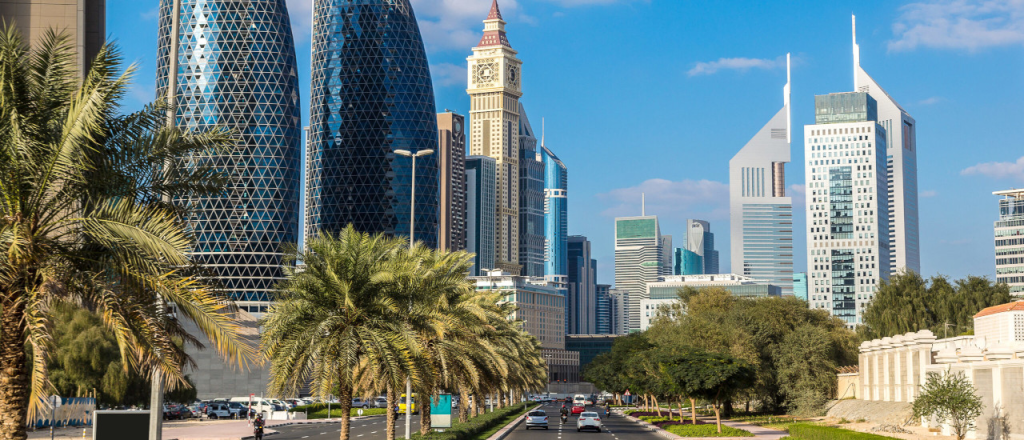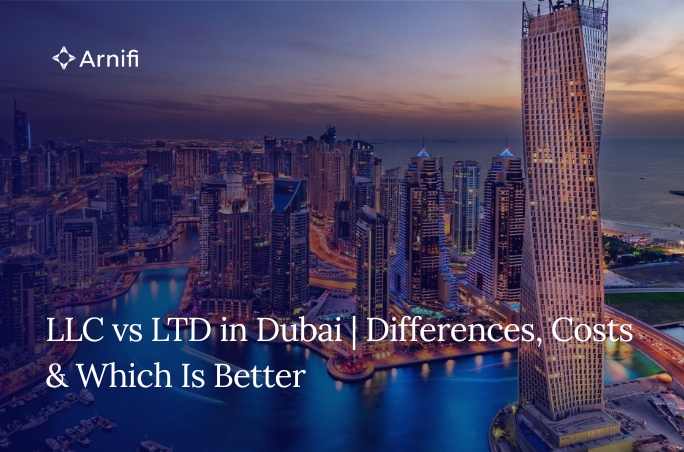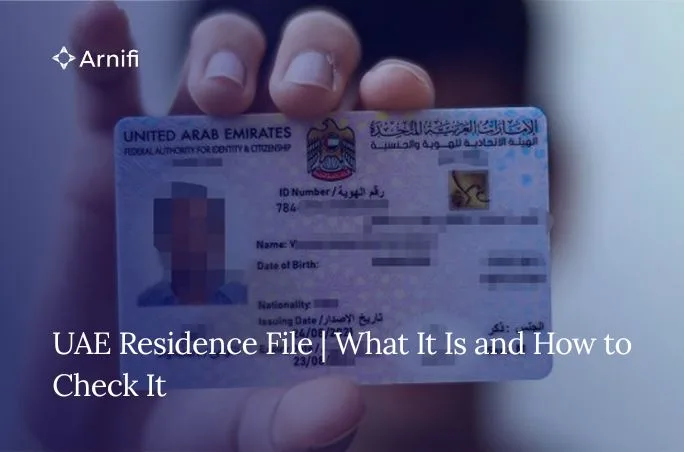Ministry of Finance Consultation: UAE Global Minimum Tax Plan
by Shethana Jul 30, 2024  16 MIN READ
16 MIN READ

The UAE Ministry of Finance has started an important project to bring in a global minimum tax (GMT) system, showing its dedication to worldwide tax changes. With this, there is a public consultation process aimed at collecting opinions from different stakeholders, which includes businesses, tax experts, and everyday people. This way, there is a clear and open method for creating future tax policy in the UAE.
Overview of the UAE Global Minimum Tax Plan
The UAE’s choice to put a global minimum tax into action comes from the OECD’s Base Erosion and Profit Shifting (BEPS) project, especially Pillar Two. This part concentrates on making sure that multinational enterprises (MNEs) contribute their fair share of taxes around the world. By doing this, the initiative aims to reduce tax avoidance tactics that take advantage of weaknesses in international tax rules, and it works to stop profit shifting to places with low or no taxes.
In addition, the UAE’s global minimum tax plan wants to bring in a minimum tax rate of 15% for MNEs that have global earnings over €750 million. With this global standard in place, the UAE shows its commitment to creating a fair and open international business setting. Consequently, this decision is expected to affect the UAE CT (Corporate Tax) system, which might result in some changes and updates to fit with the global minimum tax structure.
The Concept and Objectives Behind the Global Minimum Tax
The global minimum tax (GMT) is a new plan created by over 135 countries, working together through the OECD/G20 Inclusive Framework on BEPS. With this, the main aim is to make things fairer for multinational enterprises (MNEs) by reducing chances for tax avoidance that occurs when profits shift to low-tax regions.
Through the introduction of a minimum corporate tax rate of 15%, the framework wants to make sure MNEs pay their fair share of taxes, no matter where they operate. This is really important for countries that are facing revenue losses because of smart tax planning by MNEs.
In the end, the GMT wants to improve tax fairness, raise global tax revenues, and discourage profit shifting. This will help create a better and fairer international tax policy.
The Ministry of Finance’s Impact on UAE Businesses and Economy
The implementation of the global minimum tax (GMT) in the UAE will surely affect businesses that operate in the country. Although the immediate effects are not fully clear yet, changes in tax planning, compliance needs, and even some operational costs for certain businesses are likely to occur.
With the UAE’s careful way of putting this into action, it emphasizes consultation and thinks about the local business scene, trying to reduce any negative effects. Additionally, by following international tax standards, the UAE strengthens its image as a trustworthy and open global business place, which may bring in even more foreign investment.
Over time, the GMT is thought to help with better economic stability and sustainability, both globally and within the UAE. As businesses get used to this new environment, attention will shift to creating value, encouraging innovation, and focusing more on the substance of their work rather than just tax-related strategies.
Key Features of the UAE’s Approach to Implementing the Global Minimum Tax
The way the UAE is working on the Global Minimum Tax focuses on following international rules without causing too many changes to its friendly business scene. The suggested plan takes into account what businesses in the UAE need, especially those in free zones.
A key part of the plan includes talking to various stakeholders to ensure there is transparency and to gather their input before the laws are finalized. Alongside this, the UAE is looking for ways to keep its strong position in the market, possibly by offering specific incentives and rolling out the changes step by step.
Pillar Two Explained: The Technical Details
Pillar Two of the OECD/G20 BEPS project, often referred to as the GloBE rules, encompasses a set of complex regulations designed to ensure multinational enterprise groups (MNE Groups) pay a minimum level of tax on their income globally.
The GloBE rules achieve this through two key mechanisms: The Income Inclusion Rule (IIR) and the Undertaxed Payment Rule (UTPR). The IIR requires the parent entity of an MNE Group to pay a top-up tax if the effective tax rate (ETR) in a subsidiary’s jurisdiction falls below 15%. If the IIR doesn’t fully address the low-taxed income, the UTPR allows other jurisdictions in the MNE Group to collect a portion of the top-up tax.
| Rule | Description |
| Income Inclusion Rule (IIR) | Requires parent entities to pay top-up tax on subsidiaries’ income taxed below 15%. |
| Undertaxed Payment Rule (UTPR) | Allocates top-up tax collection rights to other jurisdictions if the IIR doesn’t fully address low-taxed income. |
These rules, outlined in the GloBE Model Rules, serve as a template for countries, including the UAE, to implement the GMT framework effectively.
The Role of the Ministry of Finance in the Consultation Process
The UAE Ministry of Finance is taking the lead in putting the Global Minimum Tax into action, showing its commitment to transparency and teamwork. A key part of this effort involves the public consultation process, which encourages businesses, tax advisors, and citizens to share their thoughts on the proposed plan.
In their public consultation document, the Ministry of Finance laid out a detailed outline of possible policy options, one of which is the Domestic Minimum Top-up Tax (DMTT). This document aims to collect different viewpoints and improve the regulatory framework so that it fits with the UAE’s economic goals.
By using this consultation process, the Ministry of Finance wants to make sure the final strategy for implementing GMT is based on solid information, takes into account possible challenges, and is designed to bring the most benefits to the UAE economy.
Stakeholder Engagement and Public Consultation
The UAE Ministry of Finance understands how important it is to get feedback from stakeholders. For this reason, they have started a public consultation phase as part of the GMT implementation process. Through this forum, stakeholders can engage in open discussions. They can share their thoughts and worries, including businesses, tax professionals, and the general public.
With this engagement, the ministry does more than just inform; it looks for viewpoints from stakeholders on different topics. These topics include possible challenges, complexities in compliance, and ideas for building a strong yet business-friendly GMT framework.
How Stakeholders Can Participate in the Consultation
By recognizing how important it is to have different viewpoints, the Ministry of Finance asks all stakeholders to take part actively during the public consultation phase. Through feedback and suggestions, we can create a solid and well-informed GMT framework.
To contribute to the digital public consultation, stakeholders have several ways to get involved:
- Reviewing the Consultation Document: Read the consultation document thoroughly, which is open to the public and explains the proposed GMT framework and policy choices.
- Submitting Written Feedback: Share detailed insights, suggestions, and concerns about the proposed regulations by sending in formal written submissions.
- Engaging in Public Forums: Join online webinars, Q&A sessions, and workshops that the Ministry of Finance organizes to discuss the GMT implementation.
By participating actively in this consultative process, stakeholders help shape a strong and balanced GMT regime within the UAE.
Timeline and Stages of the Public Consultation Process
The public consultation process, led by the Ministry of Finance, follows a clear schedule. This helps ensure plenty of chances for stakeholders to engage and share their thoughts. By taking this step-by-step approach, it allows for careful evaluation of different viewpoints.
In the first stage, they released the public consultation document, which outlined the proposed GMT framework and some possible policy options. After that, there was a certain time set aside for stakeholders to read the document and provide their feedback through specific channels.
Right now, the Ministry of Finance is busy reviewing the submissions they received. They are paying close attention to the thoughts and suggestions from the stakeholders. Once they finish this review process, the Ministry will finalize the GMT legislation, adding important insights from the consultation.
Implications for Multinational Companies Operating in the UAE
The Global Minimum Tax in the UAE will have important effects on multinational companies (MNEs) that work in the country. With this change, MNEs must get used to new compliance rules, which include careful income and tax reporting in all the places they operate.
In addition to this, the GMT requires a review of current tax planning methods to make sure they match the new rules. Such changes are meant to encourage more transparency and fairness in international taxation. This can also affect the global financial setups and choices that MNEs make.
Compliance Requirements and Reporting Obligations
The introduction of the Global Minimum Tax (GMT) in the UAE will bring new compliance needs for multinational groups working there. To avoid potential penalties, following these rules is very important for keeping a compliant tax profile.
From the compliance standpoint, there are key aspects like additional reporting requirements. MNEs will need to provide detailed financial data, such as income earned and taxes paid in each location where they have operations. This information will help in deciding if they meet the minimum 15% tax requirement under the GMT rules.
Besides that, MNEs may have to adjust their current accounting and tax reporting systems. This change will help guarantee that they collect and report accurate data according to the new regulations. It’s wise to get professional advice on these compliance and reporting needs for a smooth transition.
Strategies for Effective Tax Planning Under the New Regulations
With the implementation of the Global Minimum Tax (GMT), there needs to be a change in tax planning for multinational enterprises in the UAE. Approaches that focus on lowering tax responsibilities legally might need to be changed to meet the new rules.
In order to understand the effects of the UAE CT regime, MNEs should analyze how it interacts with the GMT system. They must evaluate whether their current corporate setups and intercompany dealings still work well for taxes under the new regulations, or if they need to change anything to improve their tax standings.
Due to this, getting advice from tax advisors who know about international taxation and the UAE CT regime is very important. These experts can offer personalized guidance on things like restructuring, adjusting transfer pricing, and other methods to make sure they follow the regulations while also reducing tax obligations under the GMT.
UAE’s Tax Framework in the Context of Global Tax Reforms
The UAE has decided to introduce the Global Minimum Tax, showing its active role in connecting its tax system with changing global standards. With this decision, the country is presenting itself as a responsible player in international tax changes, which helps make it look good as a clear and reliable business center.
Through joining global efforts like the OECD BEPS project, the UAE wants to support a more fair and sustainable worldwide tax system. This dedication to using global best practices is likely to make the UAE more appealing to foreign investors who are on the lookout for stable and trustworthy places.
Comparison with Other Jurisdictions Implementing the Global Minimum Tax
With the Global Minimum Tax (GMT) becoming more popular around the world, many places are putting plans in place to add this rule to their own tax systems. The UAE’s method works well with the OECD’s recommendations, but it also takes into account its own unique economy and business situation.
Across different areas, some have decided to implement the GMT gradually, slowly bringing in the 15% tax rate. Other places are looking at giving temporary support or special breaks to certain industries or businesses to help ease any problems during this change.
In the UAE, the approach includes regular discussions to make the transition as smooth as possible and to tackle specific worries from stakeholders. This focus on involving stakeholders is what makes it unique and allows for a customized approach, matching global standards with local economic needs.
The Future of Tax Havens and the Shift Towards Transparency
The implementation of the global minimum tax (GMT) marks an important step in the battle against tax avoidance and how tax havens operate in the future. With the introduction of a global minimum corporate tax rate, the environment for businesses becomes more balanced, clearly reducing the temptation for companies to shift profits to places with low taxes.
Through this change towards fairness and openness in taxation, tax havens will probably have to rethink how they do things. For some of them, there might be a need to come into line with international rules, which could lead them to change their tax policies to keep attracting businesses. For others, there is a chance of facing more pressure to update their systems, as they could end up isolated economically if they don’t agree to these changes.
In conclusion, the GMT brings in a new era of international taxation where qualities like transparency, substance, and fairness take the top spot over competition based on taxes, creating a more fair and lasting global economy.
Challenges and Opportunities for the UAE
Implementing the Global Minimum Tax brings both difficulties and chances for the UAE. With navigating the transition, there are also potential worries among businesses, and ensuring a smooth connection with the current tax rules is a major challenge.
On the other hand, this change gives the UAE a special chance to strengthen its promise to global tax standards. It helps to improve its image as a clear and trustworthy international business center. The GMT might also draw more foreign investments looking for stability and regulatory compliance, while it could lessen moves made by businesses purely for tax reasons.
Navigating Uncertainties in the Transition Period
The transition period for the implementation of the global minimum tax (GMT) in the UAE might bring doubts for businesses and investors. With new rules to follow, understanding what is required for compliance becomes essential. They will need to carefully figure out how these changes affect their current operations.
For addressing these uncertainties, the UAE needs to focus on clear communication with all stakeholders. By giving timely updates and tackling concerns properly, they can help ease worries. Also, providing help on how to read and implement the new rules through things like workshops, webinars, and online materials could be very useful.
By actively engaging with the business community, being prepared to deal with unexpected problems becomes key to a smooth transition. This effort will help lessen disruptions to the lively business scene in the UAE.
Potential Benefits for the UAE as a Competitive Business Hub
The UAE’s choice to adopt the Global Minimum Tax might look like it has challenges, but it also offers a chance to improve its position as an attractive business center. This can help draw in foreign direct investment and support economic growth over the long term.
With matching international tax standards, the UAE strengthens its reputation as a trustworthy place for business, making it more appealing to multinational companies that want stability and to follow the rules. This improved image can bring in more investments, which helps diversify the economy and create more jobs.
In addition, the GMT creates fairer competition for companies in the UAE by focusing on substance and real value instead of just tax benefits. This change can spark more innovation and lead to a healthier business environment, making the UAE an even stronger player in the region.
Conclusion
In conclusion, the UAE Global Minimum Tax Plan is an important change that will affect businesses and the economy. The consultation process from the Ministry of Finance gives stakeholders a chance to participate and learn how it will influence tax planning and compliance. While multinational companies adjust to the new rules, having good strategies will be very important. With the UAE’s approach to global tax reforms, there is a focus on transparency and competitive business practices. Even though there will be challenges, the UAE has chances to be a strong and appealing business center in this changing tax situation. It’s important to stay informed and involved to handle the evolving tax environment successfully.
Frequently Asked Questions
What is the Global Minimum Tax and Why is it Being Implemented?
The global minimum tax (GMT) is a tax policy created by the OECD to fight against base erosion and profit shifting (BEPS) that happens with multinational companies. By doing this, it tries to make sure that corporations pay a set amount of tax all over the world, no matter where they report their profits.
How Will the Global Minimum Tax Impact Businesses in the UAE?
The global minimum tax could change how businesses in the UAE operate, especially for multinational enterprises. With this new tax regime, these companies might need to revise their tax planning strategies. This adjustment could influence their economic impact moving forward.
What are the Next Steps for Companies in Response to the New Tax Plan?
Multinational companies need to check their tax planning strategies because of the upcoming changes in the UAE CT regime linked to the global minimum tax. With these changes, it’s important for them to get expert advice. This way, they can make sure they follow the rules and improve their tax situations.
Where Can Stakeholders Get More Information and Support?
Stakeholders can find more details and assistance about the UAE’s global minimum tax implementation by visiting the Ministry of Finance’s official channels. These include their website and the public consultation documents.
About Arnifi
Arnifi is digital first Corporate service provider helping companies enter the Middle East region, starting with UAE and Saudi Arabia markets. Founded and backed by professionals from Amazon, Souq and other large companies operating in KSA – the team understands what it takes to succeed as a startup in both UAE and Saudi Arabian markets, apart from going through the setup process multiple times. Arnifi will provide a truly digital experience to entry and scale up of companies both UAE and Saudi Arabia. Discover tailored solutions and strategic partnerships that propel your business forward. Check out at – www.Arnifi.com for more details.
Also Read: Payroll Rules in Dubai and UAE: A Step-by-Step Guide
Top UAE Packages

Related Articles
Top UAE Packages



